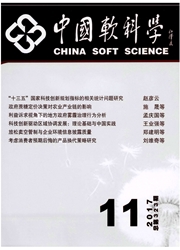

 中文摘要:
中文摘要:
经济周期所引致的社会健康福利变化是经济学持续关注的焦点。本文系统回顾和阐述了经济周期、环境污染与国民健康关系的内在机制,利用1990-2010年89个国家的跨国面板数据库,反复通过多种方法检验了三者之间的关系,发现:当失业率上升时,各类健康指标会出现不同程度的改善,死亡顺周期可能是中短期非长期现象;环境污染成为经济周期影响国民健康的重要传导渠道,经济衰退时期空气污染改善所带来的健康贡献大致占到了20%左右;经济周期对健康的影响在不同年龄、国家和性别中存在着明显的异质性;适度闲暇会带来死亡率的下降,但是过度失业并不利于健康。将经济增长速度控制在适度范围内有利于改善居民的健康福利,凸显了经济发展的健康代价以及经济适度放缓的健康收益,对当前中国经济增长结构转型和适应经济新常态具有重要的启示意义。
 英文摘要:
英文摘要:
The change in social health and welfare caused by the economic cycle is a focus of economics. This paper reviews and discusses the internal mechanism of the relationship between economic cycle,environmental pollution and national health,using the multinational panel database of 89 countries in 1990- 2010,and examines the relationship between the three. It is found that: when unemployment rises,all kinds of health indicators will appear to improve,the death cycle may be short-term non-permanent phenomenon; environmental pollution has become an important part of the economic cycle of the national health,The health contribution of air pollution in the recession period is about 20%; the impact of the economic cycle on the health of the health effects of different age,country and gender has obvious heterogeneity; moderate leisure will bring the decline,but over unemployment is not conducive to health. To control the economic growth rate in a moderate range is conducive to improving the health benefits of residents,highlighting the health costs of economic development and the health benefits of moderate slowdown in economic growth,which has important implications for China's economic growth structure transformation and adaptation to economic new normal.
 同期刊论文项目
同期刊论文项目
 同项目期刊论文
同项目期刊论文
 期刊信息
期刊信息
